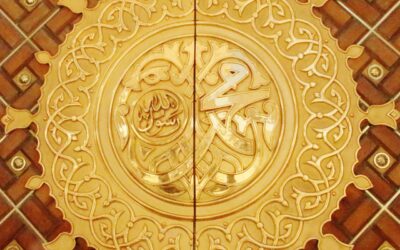These remarkable individuals exemplify unwavering faith, resilience, and commitment to their beloved Prophet, leaving an indelible legacy for Muslims around the world.
Who Were the Sahabas?
The term “Sahaba” (singular: Sahabi) refers to the companions of Prophet Muhammad (ﷺ). They were the men and women who had the honor of meeting the Prophet during his lifetime, believed in his message, and followed him in word and deed. The Sahabas came from diverse backgrounds, encompassing a wide spectrum of society, including merchants, warriors, scholars, and even former adversaries of Islam.
Narrated `Abdullah:
“The Prophet (ﷺ) said, “The best people are those of my generation, and then those who will come after them (the next generation), and then those who will come after them (i.e. the next generation), and then after them, there will come people whose witness will precede their oaths, and whose oaths will precede their witness.”
(Sahih al-Bukhari, 6429)
The Significance of the Sahabas
The Sahabas hold a special place in Islamic history and theology for several reasons:
Witnesses to Revelation: The Sahabas were privileged to witness the Quranic revelations firsthand. Their understanding of the Quran and Hadith (sayings and actions of the Prophet) is highly regarded, making their interpretations a crucial source of Islamic jurisprudence and theology.
Role Models: Sahabas are seen as exemplars of piety, humility, and dedication to Allah. Their lives serve as a source of inspiration for Muslims striving to follow the path of righteousness and emulate the Prophet(ﷺ)’s teachings.
Transmission of Knowledge: Many Sahabas became scholars and transmitters of Islamic knowledge. They played a vital role in preserving and passing down the teachings of Islam to subsequent generations.

Prominent Sahabas
While it is impossible to encompass the entire list of Sahabas in one article, here are a few prominent ones whose contributions are widely recognized:
Abu Bakr As-Siddiq: He was the Prophet’s closest companion and the first caliph (leader) of the Muslim community after the Prophet’s death. His unwavering faith earned him the title “As-Siddiq,” meaning “the Truthful.”
Narrated Ibn ‘Abbas:
“The Prophet said, “If I were to take a Khalil, I would have taken Abu Bakr, but he is my brother and my companion (in Islam).”
(Sahih al-Bukhari, 3656)
Umar ibn al-Khattab: The second caliph, Umar was known for his justice and administrative reforms. His leadership expanded the Islamic empire.
Narrated ‘Uqbah bin ‘Amir:
“The Messenger of Allah (ﷺ) said: “If there was to have a Prophet after me, it would have been ‘Umar bin Al-Khattab.”
(Jami` at-Tirmidhi, 3686)
Uthman ibn Affan: The third caliph, Uthman, is known for his compilation of the Quran into a single book. He was a generous benefactor and oversaw the expansion of Islamic territories.
Aisha reported:
“Allah’s Messenger (ﷺ) was lying in the bed in my apartment with his thigh uncovered and Abu Bakr sought permission to enter. It was given to him and he conversed in the same very state (the Prophet’s thigh or shank uncovered). Then `Umar sought permission to enter and it was given to him and he conversed in that very state. Then `Uthman sought permission to enter; Allah’s Messenger (ﷺ) sat down and he set right his clothes. Muhammad (one of the narrators) said: I do not say that it happened on the same day. He (`Uthman) then entered and conversed and as he went out, `Aisha said: Abu Bakr entered and you did not stir and did not observe much care (in arranging your clothes), then `Umar entered and you did not stir and did not arrange your clothes, then `Uthman entered and you got up and set your clothes right, so he (ﷺ) said: Should I not show modesty to one whom even the Angels show modesty.”
(Sahih Muslim, 2401)
Ali ibn Abi Talib: The fourth caliph and the Prophet’s cousin, Ali, was known for his deep knowledge of Islam and his bravery. He played a pivotal role in early Islamic history.
Narrated by ibn ‘Abbas,
‘I am the city of knowledge and ‘Ali is its gate’
(Sunan Tirmidhi, Hadith: 3723)
Aisha bint Abi Bakr: Aisha, the Prophet’s wife, was a prolific narrator of Hadith and an esteemed scholar. Her contributions to Islamic jurisprudence are highly regarded.
Lessons from the Sahabas
The lives of the Sahabas offer valuable lessons for all:
Faith and Sacrifice: The unwavering faith of the Sahabas, despite facing immense challenges, teaches us the importance of trust in Allah’s plan and the value of sacrifice for a higher purpose.
Humility and Service: The humility and selflessness of the Sahabas in serving their community demonstrate the importance of humility and service in the practice of Islam.
Unity and Brotherhood: The unity among the Sahabas transcended tribal and racial boundaries, setting a profound example of the importance of brotherhood and solidarity in Islam.
In conclusion, the Sahabas of Prophet Muhammad (ﷺ) are cherished figures in Islamic history, revered for their dedication to Allah, their exemplary character, and their pivotal role in the spread of Islam. Their legacy continues to inspire Muslims worldwide to strive for faith, righteousness, and devotion to the teachings of the Prophet Muhammad (ﷺ).











